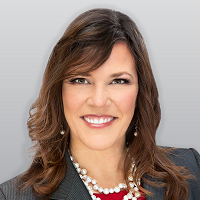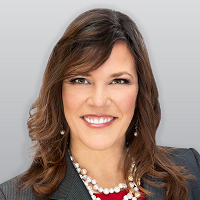Financial Checklist for Young Adults: What I Wish I’d Known Then
Even if you think you know critical information, do you really understand what it means and the impact it could have on your standard of living later in life?


Profit and prosper with the best of Kiplinger's advice on investing, taxes, retirement, personal finance and much more. Delivered daily. Enter your email in the box and click Sign Me Up.
You are now subscribed
Your newsletter sign-up was successful
Want to add more newsletters?

Delivered daily
Kiplinger Today
Profit and prosper with the best of Kiplinger's advice on investing, taxes, retirement, personal finance and much more delivered daily. Smart money moves start here.

Sent five days a week
Kiplinger A Step Ahead
Get practical help to make better financial decisions in your everyday life, from spending to savings on top deals.

Delivered daily
Kiplinger Closing Bell
Get today's biggest financial and investing headlines delivered to your inbox every day the U.S. stock market is open.

Sent twice a week
Kiplinger Adviser Intel
Financial pros across the country share best practices and fresh tactics to preserve and grow your wealth.

Delivered weekly
Kiplinger Tax Tips
Trim your federal and state tax bills with practical tax-planning and tax-cutting strategies.

Sent twice a week
Kiplinger Retirement Tips
Your twice-a-week guide to planning and enjoying a financially secure and richly rewarding retirement

Sent bimonthly.
Kiplinger Adviser Angle
Insights for advisers, wealth managers and other financial professionals.

Sent twice a week
Kiplinger Investing Weekly
Your twice-a-week roundup of promising stocks, funds, companies and industries you should consider, ones you should avoid, and why.

Sent weekly for six weeks
Kiplinger Invest for Retirement
Your step-by-step six-part series on how to invest for retirement, from devising a successful strategy to exactly which investments to choose.
As a young adult, you know it’s important to make smart financial choices and form good habits. Yet how can you establish smart financial habits if you don’t know what you don’t know?
If you don’t know much about money, you’re not alone. A recent study by the National Financial Educators Council showed more than 50% of high schoolers failed a national financial literacy test. I connected with financial mentors and studied finance as a young adult, yet there are still important financial lessons I wish I had received earlier.
The following is a list of guidelines and important actions to help you build a foundation and get a strong start in your financial journey. This is the financial wisdom I wish I had listened to and fully understood in my 20s.

Avoid Debt and Be Strategic With Student Loans.
The best way to financial success is to not have debt!
1. Consider using cash, debit cards or prepaid debit cards instead of credit cards. While credit card rewards may be tempting, many young people find themselves paying interest that far exceeds rewards benefits.
2. If its value will go down over time, don’t finance the purchase. Save up and pay cash for cars and similar purchases.
3. Consider every way to minimize education costs rather than taking on student debt. For example, explore the following options to keep college expenses lower:
- In-state versus out-of-state schools and public vs. private institutions.
- College commensurate with desired degree/career. Could trade school or community
college be an option? - Live off-campus.
- Explore all scholarships, grants, work/study programs.
- Side-business ideas.
- Tuition-reimbursement options.

Establish a Budget, Stick to It and Pay Yourself First.
Establishing prudent spending and savings habits is vital to long-term financial success. Regardless of career choice or earning potential, anyone who masters spending less than they earn and investing the excess may build significant wealth.
My personal recommendation for some excellent online budgeting tools to help individuals track spending are Mint.com, Empower.com, YNAB.com and EveryDollar.com. All offer a user-friendly, free app, as well as multiple features for managing individual finances.
An important aspect of budgeting is a concept called “pay yourself first.” That means prioritizing saving and investing dollars for the future ahead of any other current expenses and goals. The power of compound growth over a longtime horizon is remarkable for your long-term financial wealth, especially if you start in your 20s.
- Establish an emergency fund. Set aside enough money in an emergency fund to cover six months of living expenses to reserve for an emergency. Put these savings in a separate account so you aren’t tempted to use them! Save as either cash or a liquid money market fund.
- Take advantage of “free money.” If your job offers matching retirement contributions up to a certain percentage, such as a 401(k), contribute at least that percentage. This is a 100% return on investment.
- Save retirement funds in a Roth 401(k) or Roth IRA first. Roth 401(k)s and Roth IRAs allow you to save for retirement in the most tax-advantaged way (zero tax on the growth). Note that there are penalties for early withdrawal, and there are income limitations that impact high earners.

Execute Essential Legal Documents.
Once you turn 18, parents and legal guardians have no access to or control over your financial, medical or educational information. Having a plan for the unexpected will alleviate stress and expensive repercussions during potential emergencies. The following legal documents must be drafted and executed by an attorney, so a trusted person can step in to assist in case of incapacity.
- Will. This document outlines how property should be divided at your death and designates a person responsible for handling the details; without one, courts will make decisions according to state law.
- Living will, aka advanced or health care directive. This document outlines preferences for treatment if you face a serious medical situation.
- Medical/health care power of attorney. Often part of a living will, it designates a person to make medical decisions for you if you are incapacitated.
- Durable financial power of attorney. This document designates a person to make financial decisions on your behalf if you are unable during your lifetime.

Review Insurance Coverage.
Property and casualty insurance. It’s a good idea for young adults to consider talking with an insurance professional to decide whether to obtain their own car insurance or whether an umbrella policy is needed. Renters should purchase renter’s insurance, as it can limit the renter’s liability if someone sues due to a personal injury or damaged property.
Life insurance. In general, life insurance gets more expensive with age. Term insurance for a young, healthy person is relatively inexpensive. Additionally, it is prudent for parents to consider obtaining coverage for their child before cosigning a loan so the obligations would be covered if their child dies before the loan is paid. Finally, insurance needs should be evaluated at major life events, including a home purchase, marriage or having children.
Establishing good financial habits early in life can create a solid path toward financial success. You can approach this list yourself or ask a financial adviser for assistance. The time to build good financial habits is now!
This article was written by and presents the views of our contributing adviser, not the Kiplinger editorial staff. You can check adviser records with the SEC or with FINRA.
Profit and prosper with the best of Kiplinger's advice on investing, taxes, retirement, personal finance and much more. Delivered daily. Enter your email in the box and click Sign Me Up.

Valerie Thomas is a Managing Director and the Chief Client Experience Officer of Marquette Wealth Management, a high-touch wealth management firm with integrated investment and financial planning services. An original founding member and part of the firm’s management team, she is responsible for a variety of strategic firm initiatives, with a primary focus on optimizing the client experience by customizing investment and planning strategies.
-
 Quiz: Do You Know How to Avoid the "Medigap Trap?"
Quiz: Do You Know How to Avoid the "Medigap Trap?"Quiz Test your basic knowledge of the "Medigap Trap" in our quick quiz.
-
 5 Top Tax-Efficient Mutual Funds for Smarter Investing
5 Top Tax-Efficient Mutual Funds for Smarter InvestingMutual funds are many things, but "tax-friendly" usually isn't one of them. These are the exceptions.
-
 AI Sparks Existential Crisis for Software Stocks
AI Sparks Existential Crisis for Software StocksThe Kiplinger Letter Fears that SaaS subscription software could be rendered obsolete by artificial intelligence make investors jittery.
-
 Social Security Break-Even Math Is Helpful, But Don't Let It Dictate When You'll File
Social Security Break-Even Math Is Helpful, But Don't Let It Dictate When You'll FileYour Social Security break-even age tells you how long you'd need to live for delaying to pay off, but shouldn't be the sole basis for deciding when to claim.
-
 I'm an Opportunity Zone Pro: This Is How to Deliver Roth-Like Tax-Free Growth (Without Contribution Limits)
I'm an Opportunity Zone Pro: This Is How to Deliver Roth-Like Tax-Free Growth (Without Contribution Limits)Investors who combine Roth IRAs, the gold standard of tax-free savings, with qualified opportunity funds could enjoy decades of tax-free growth.
-
 One of the Most Powerful Wealth-Building Moves a Woman Can Make: A Midcareer Pivot
One of the Most Powerful Wealth-Building Moves a Woman Can Make: A Midcareer PivotIf it feels like you can't sustain what you're doing for the next 20 years, it's time for an honest look at what's draining you and what energizes you.
-
 I'm a Wealth Adviser Obsessed With Mahjong: Here Are 8 Ways It Can Teach Us How to Manage Our Money
I'm a Wealth Adviser Obsessed With Mahjong: Here Are 8 Ways It Can Teach Us How to Manage Our MoneyThis increasingly popular Chinese game can teach us not only how to help manage our money but also how important it is to connect with other people.
-
 Looking for a Financial Book That Won't Put Your Young Adult to Sleep? This One Makes 'Cents'
Looking for a Financial Book That Won't Put Your Young Adult to Sleep? This One Makes 'Cents'"Wealth Your Way" by Cosmo DeStefano offers a highly accessible guide for young adults and their parents on building wealth through simple, consistent habits.
-
 Global Uncertainty Has Investors Running Scared: This Is How Advisers Can Reassure Them
Global Uncertainty Has Investors Running Scared: This Is How Advisers Can Reassure ThemHow can advisers reassure clients nervous about their plans in an increasingly complex and rapidly changing world? This conversational framework provides the key.
-
 I'm a Real Estate Investing Pro: This Is How to Use 1031 Exchanges to Scale Up Your Real Estate Empire
I'm a Real Estate Investing Pro: This Is How to Use 1031 Exchanges to Scale Up Your Real Estate EmpireSmall rental properties can be excellent investments, but you can use 1031 exchanges to transition to commercial real estate for bigger wealth-building.
-
 Should You Jump on the Roth Conversion Bandwagon? A Financial Adviser Weighs In
Should You Jump on the Roth Conversion Bandwagon? A Financial Adviser Weighs InRoth conversions are all the rage, but what works well for one household can cause financial strain for another. This is what you should consider before moving ahead.
